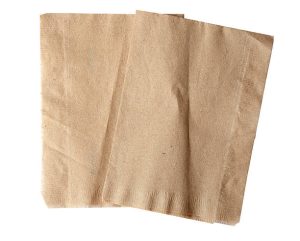
Something in my everyday life that’s generally considered to be waste are napkins. The average student here at Hampshire uses napkins for breakfast, lunch, dinner, and other snacks in between. Mary Douglas’ conception of dirt being that it’s “a matter out of place ” aligns with napkins being waste. Though it can be transformed to fit aesthetics, its original usage makes it inherently out of place, something only temporary. It’s also very interesting how the value of a napkin could change in an instant; one minute it’s a sense of security to clean up a small mess, the next it’s thrown out and no longer important. Another idea from the text mentions that “saliva pollution can be transmitted through some material substances.” I wonder how these ideas/rules around cleanliness and pollution evolved to more modern day times. Where do reusable napkins/towels of all sorts fall on the clean/dirty scale? What would that conversation sound like? Whilst on the topic of reusable napkins, a new conception of waste can be applied to this idea. One of the google definitions of waste state that “use or expend carelessly, extravagantly, or to no purpose.” It’s intriguing because, after looking at this definition, I take a look around my dorm room and notice how many things have no purpose. Their only purpose is to be of no value.